New Report from the Population Institute on GBV: “Behind Closed Doors: Exposing and Addressing Harmful Gender-Based Practices in the United States”
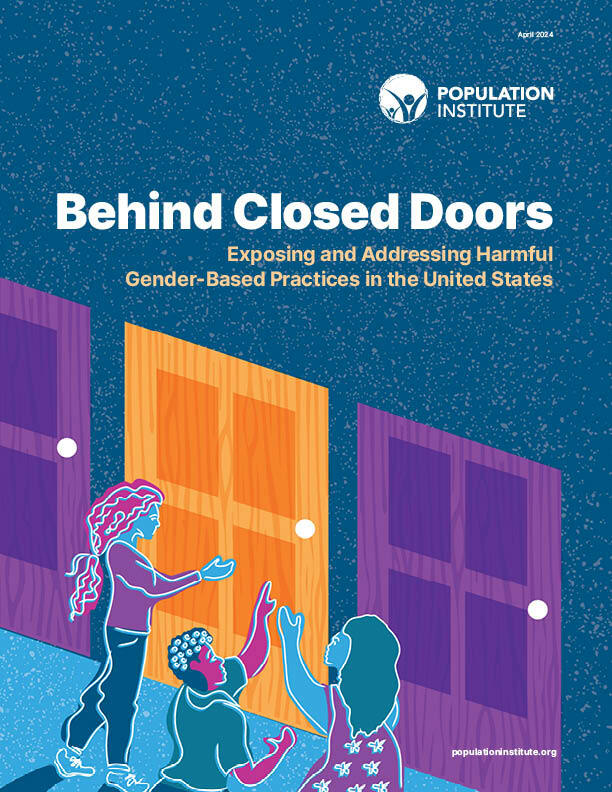
Read more in “Behind Closed Doors: Exposing and Addressing Harmful Practices in the United States.” Sahiyo is proud to help announce the publication of a new report by the Population Institute a nonprofit that advocates for gender equality and universal access to sexual and reproductive health services, titled, “Behind Closed Doors: Exposing and Addressing Harmful Gender-Based Practices in the United States”. The report tackles various forms of gender-based violence (GBV) occurring in the United States including female genital mutilation/cutting (FGM/C); child, early, and forced marriage/union (CEFMU); femicide, andvirginity testing. The report seeks to emphasize how prevalent these practices are in the United States, as they are often dismissed as harms that occur in foreign countries or other cultures, not here in the United States. However, these forms of GBV are increasing in the U.S. As reported by the Center for Disease Control and Prevention, with more than 500,000 women and girls are estimated to have undergone or are at risk of undergoing FGM/C in the US. The Tahirih Justice Center reports that at least 300,000 minors are estimated to have been married in the United States between 2000 and 2018. While theViolence Policy Center states that the rate of gender-based murder in the U.S. continues to be the highest amongst high-income countries, with a reported 2.2 per 100,000 women being intentionally killed in 2021. Women in the U.S. are 28 times more likely to be murdered with a gun than women in peer countries. These statistics highlight the need for educating people in the U.S. about the prevalence of various forms of GBV. This report also hopes to bring this crisis to the attention of U.S. policymakers, and other government officials who cansupport advocating for culturally competent legislation, survivor-focused initiatives and programs, and comprehensive sexuality education to counter these harms. Gender-based violence affects us all. Let’s create a culture of support and solidarity to uplift and empower survivors. Read about the widespread nature of harmful gender-based practices in the United States in the Population Institute’s latest report, “Behind Closed Doors: Exposing and Addressing Harmful Gender-Based Practices in the United States”.
Upcoming Event: “Impactful Media Reporting on Female Genital Mutilation/Cutting in the United States: A Conversation”
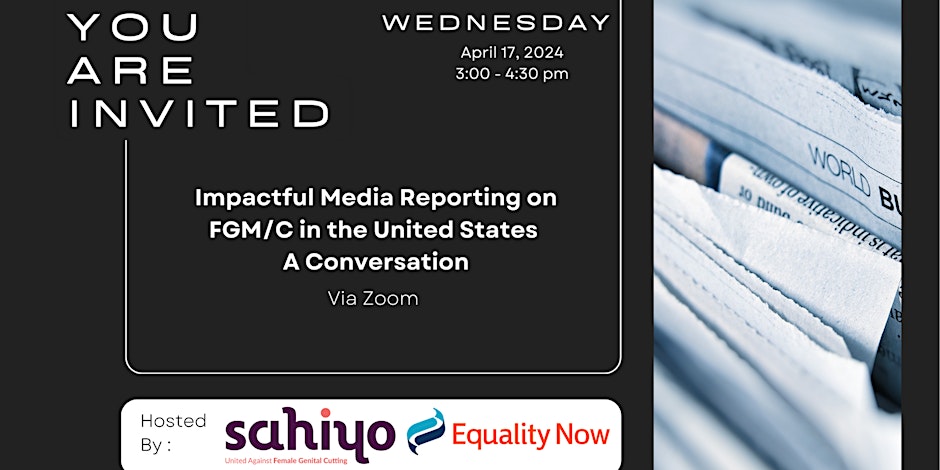
Date: April 17, 2024 Time: 3:00 PM to 4:30 pm EST Registration: https://bit.ly/FGMCMediaReporting Join Equality Now and Sahiyo U.S. on Wednesday, April 17, 2024, at 3:00 PM EST, for a discussion that will explore the intricacies of reporting on female genital mutilation/cutting (FGM/C). This invitation extends to all media professionals — reporters, journalists, editors, and communication and content creators — who are looking to deepen their understanding and refine their approach to covering FGM/C. This event is particularly timely, given the current landscape where misinformation about FGM/C often leads to narratives that are uninformed, conflated, or misrepresented The Need for Nuanced Reporting: FGM/C is recognized as a human rights violation and poses unique reporting challenges. It is essential for media coverage to navigate these complexities with care in order to avoid inadvertently causing harm while staying true to the lived experiences of those impacted by FGM/C. This webinar seeks to address the topic by equipping attendees with the skills to report on FGM/C in a manner that is both sensitive and accurate. Who Will Be Speaking? The event will feature a panel of media and advocacy experts, including Senator Karen Kaiser, Emma Batha of Thomson Reuters Foundation News, journalist Milena Mikael Debass, and documentary filmmaker Milena Warns from Without Exception Films. The moderators of this event are Sahiyo Co-founder and U.S. executive director, Mariya Taher, and Equality Now Communications officer for North America, Mel Bailey. Attendees will gain insights on: The prevalence and complexity of FGM/C within diverse cultural contexts in the U.S. The importance of engaging with survivors or those at risk with informed sensitivity. Strategies for using media platforms to raise awareness and educate the public on FGM/C. Analytical tools for covering related news, such as legal developments and community advocacy efforts effectively. Why Attend? This webinar represents an opportunity for media professionals to contribute meaningfully to the discourse on FGM/C. Through informed reporting, the media can play a pivotal role in supporting survivors and educating the public. This event is not just about reporting on a sensitive topic; it’s about doing so in a way that respects the dignity of those impacted and contributes to positive change. If you’re involved in media or interested in how media and communications can influence social issues thoughtfully, this event is for you. It’s an opportunity to learn, ask questions, and consider the best practices for reporting on cultural practices that can lead to harm, such as FGM/C. Register for the event here
Our Fight to End FGM in The Gambia: Who is Listening?
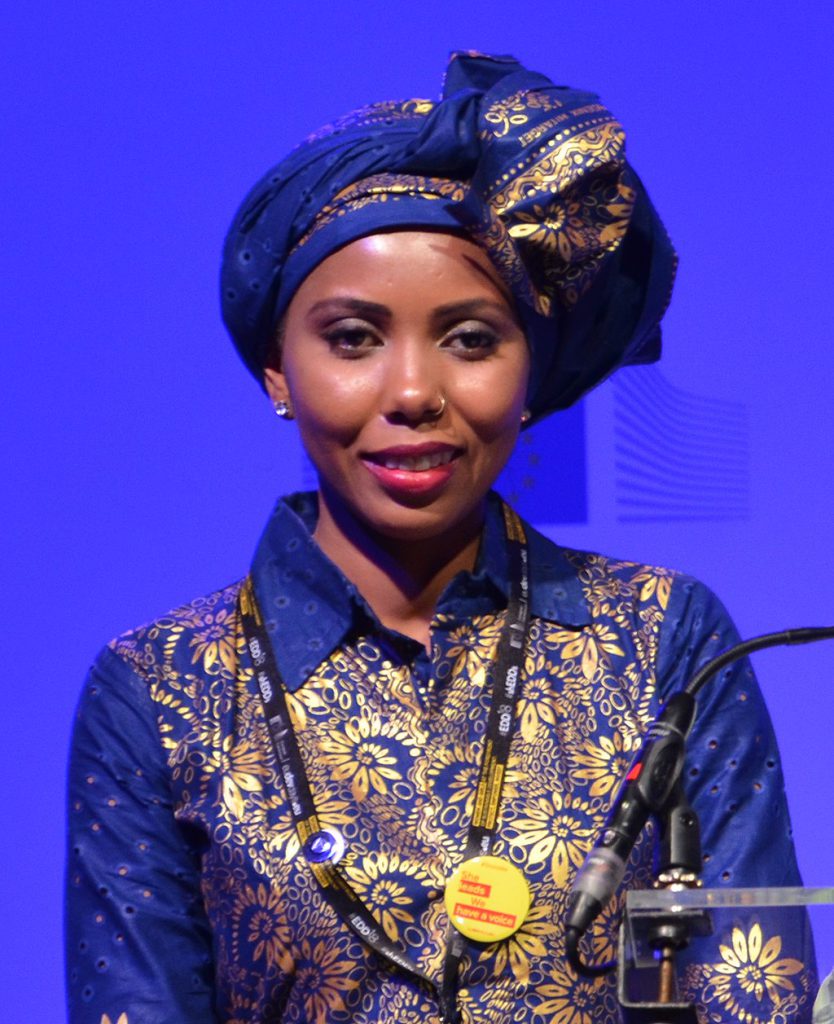
By: Jaha Dukureh, a Gambian anti-female genital mutilation campaigner and the founder and executive director of Safe Hands for Girls. Jaha was named TIME Magazine’s 100 Most Influential People for 2016 and was nominated for the Nobel Peace Prize in 2018. After I spent years campaigning to outlaw female circumcision, finally my country started to listen. In 2015, The Gambia banned Female Genital Mutilation (FGM) and imposed penalties on those who perform or practice it. As a survivor of FGM who played an instrumental role in this fight, I felt ecstatic when I heard the news. But it was a joy that wasn’t to last. If certain politicians have their way, the law will soon disappear and more young children will have to suffer the same pain I did. Some, like my half-sister, may lose their lives. As a survivor of FGM born and raised in The Gambia, a Serahule, and a proud Muslim, my journey has been one of pain, resilience, and unwavering determination. I have learned that it is important to recognize my roots and the challenges that come from speaking up, especially if you are a woman and of my background. Today, as I reflect on the challenges that lie ahead, I am compelled to raise my voice in defense of the progress that has been made in protecting our daughters, our sisters, and future generations of women and girls. I speak up for myself, for my generation, and for the millions of girls who will hear our story and say enough is enough. I will never perform this practice on my daughter. That statement, in itself, is the ultimate victory. And yet sadly, there are still many parents in The Gambia who are fighting for this practice to live on, ignoring our cries for it to end. Still, we refuse to be silenced and stand idly by as our daughters’ bodies are mutilated, their futures stolen, and their dreams shattered. That’s why, as the world celebrated women’s achievements during Women’s History Month in March, we launched a petition to stop the repeal of the ban on FGM in The Gambia. But to be effective – to actually be heard – we need all of you to help tell our parents, “Enough is enough.” Our campaign has given voices to many young girls who continue to unapologetically lead movements to help change social norms. But today, we also need to be honest with ourselves. As much as I am emotionally invested in the campaign, I have always recognized my limitations, especially when I decided to bring my campaign home. If you have the chance to watch Jaha’s Promise, you will understand what I am trying to explain. I was returning home to join a decades-long campaign to end this harmful practice, but it wasn’t easy. As young people, we developed a whole society approach to eradicating the practice. This required us to organize but also to engage with those who had different views than us. Those Gambians for whom FGM is considered a sacred passage that women have to go through. Those fathers, like mine, who gave consent to the practice without understanding what we go through. Like in many parts of Africa, FGM remains a deeply entrenched tradition in The Gambia, affecting a significant portion of the population. According to the United Nations Population Fund, 75 percent of women and girls aged 15-49 have undergone some form of FGM. This practice cuts across ethnic, religious, and cultural boundaries, affecting various communities nationwide. If lawmakers overturn the law now, the numbers will only increase. The proposed repeal is not just a legal issue; it is a moral imperative, a test of our humanity, and a reflection of our values as a society. It sends a dangerous message that the rights and dignity of girls are expendable, that their bodies are mere vessels for the preservation of harmful traditions. But we know better. We know that FGM is a violation of human rights, a form of violence against women and girls, and a practice that should end with us. That’s why we are mobilizing, organizing, and uniting to raise the alarm for the rights of all girls to live free from fear and harm. Our petition is more than just signatures on a page; it is a collective call to our parents to listen to the voice of reason and understand the harm that we go through. As a survivor, I know firsthand the pain and trauma inflicted by FGM. But I also know the power of resilience, the strength of solidarity, and the hope that springs from the darkest of places. Join me – join all of us survivors – as we raise our voices, protect our girls, and say no to the repeal of the ban on FGM in The Gambia. Sign our petition, raise awareness, and stand in solidarity with survivors of FGM. Together, we can protect our girls and build a world where every woman and girl is empowered to live a life of dignity, freedom, and equality. We owe it to our daughters, our sisters, and ourselves to mobilize our communities and demand accountability from our leaders. Our parents aren’t listening to us — our politicians aren’t listening to us — which is why we need your voice, too. With your help, our collective voices will be so loud they’ll be impossible to ignore. #StopFGMRepealGambia #ProtectOurGirls #EndFGM Jaha Dukureh, Founder & CEO of Safe Hands for Girls Council member Nalafem Collective The Gambia Related links: Behind the Wall by Gambian activist and FGC survivor Isatou Jallow UNICEF released new data on global prevalence of FGM/C
UNICEF releases new data on global prevalence of FGM/C

By Rachel Wine On March 8th, 2024, UNICEF released Female Genital Mutilation: A Global Concern, a new report with updated data on the global prevalence of female genital mutilation/cutting (FGM/C). Compared to data released eight years ago, this reveals a 15% increase in the practice; survivors now number at 230 million. Data in the report also indicates slow progress to ending FGM/C, with a lag behind the population overall, and stagnation in some countries. One such country, The Gambia, recently voted to repeal its ban on FGM/C. The report asserts that, “though the pace of progress is picking up, the rate of decline would need to be 27 times faster to meet the target of eliminating female genital mutilation by 2030.” While this report advances our understanding of FGM/C as a global practice and provides more relevant data for our work to end FGM/C, it is worth noting that Asian countries like India and Indonesia, and Middle Eastern countries like Pakistan and Iran are missing entirely. With the absence of this crucial data, we have no way of knowing the full scope of this harmful practice. This can be attributed to a lack of governmental support, as well as inadequate funding. Sahiyo recently participated in an event that draws attention to the lack of adequate funding in the FGM/C sphere, of which the real obstacles in our effects to enact change can be seen in this report. “From Rhetoric to Reality: Closing the Funding Gap to End FGM/C”, a parallel event at the 68th U.N. Commission on the Status of Women meetings, was hosted by The Global Platform for Action to End FGM/C in partnership with the United States Mission to the United Nations on March 15th. The Global Platform For Action to End FGM/C led the charge at the 2023 Women Deliver Conference to acknowledge the harms of insufficient funds in the work to end FGM/C. According to a Joint Letter by the Global Platform: “By investing $2.4 billion by 2030 we could end FGM/C altogether in 31 priority countries. There is also a need to expand funding beyond the 31 countries which have national prevalence data on the practice; and provide funding for anti-FGM work in countries which have not traditionally been prioritized, including in Asia and the Middle East. Yet only $275 million in development assistance is available leaving a funding gap of >$2.1 billion; and these funds are not available proportionately across all countries where FGM/C is known to take place.” This statement certainly manifests in the data of the UNICEF report. In collaboration with hundreds of activists, grassroots organizations, international NGOs and academics who gathered at the Women Deliver 2023 Conference in Kigali, Rwanda, the Global Platform has created the Kigali Declaration to call for an increase and shift of funding to grassroots organizations, and a convening of a Global Summit for increased commitments and investments. You can sign onto the Declaration here, and join the growing number calling to #closethefundinggap.
Join us for Sahiyo’s 8th annual Activists Retreat
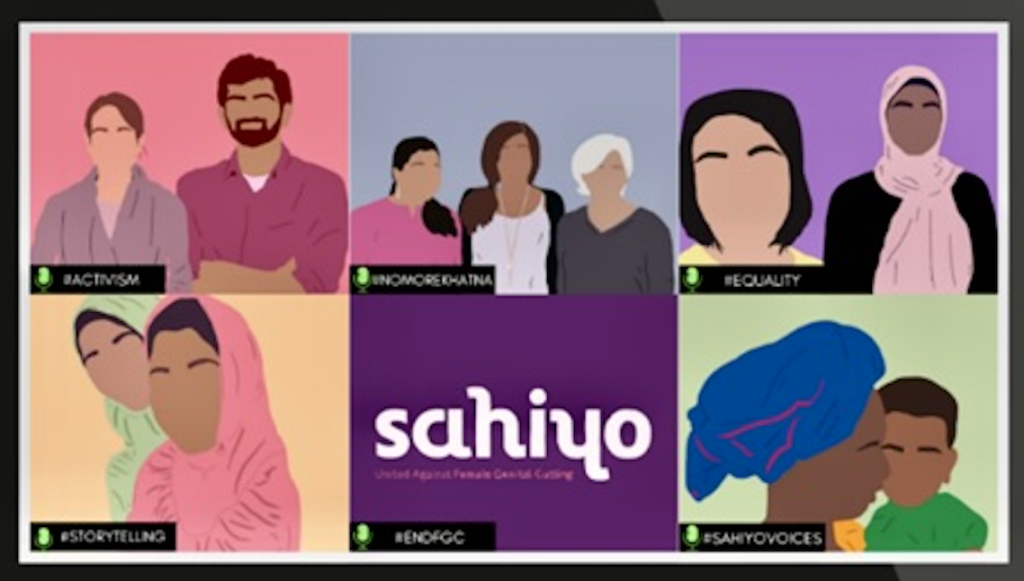
From July 26 – July 28th, 2024, Sahiyo U.S. will host its 8th annual Activists Retreat virtually via Zoom. Sahiyo hosts an annual Activist Retreats to bring anti-FGC activists together in a safe space and discuss the issue of female genital cutting, in an effort to collaboratively work towards ending the practice. Since 2018, over 85 people have participated in the retreat. Participants of the retreat are people speaking out against FGC — who work either publicly or anonymously — to raise community awareness about the need to end this harmful practice. Survivors, activists and anyone committed to ending FGC and interested in learning more about the issue is welcome to apply! More about the retreat: When: The virtual sessions will take place via Zoom on the following dates and times: Friday, July 26 – 5 to 6:30 pm PST/ 8 to 9:30 pm EST (1.5 hrs) Saturday, July 27 – 8 am to 1:00 pm PST/ 11 am to 4:00 pm EST (5 hrs) Sunday, July 28 – 8 am to 10:30 am PST/ 11 am to 1:30 pm EST (2.5 hrs) Who: The workshop is open to anyone residing in North America. Survivors of FGC, advocates working to end the practice and the general public interested in learning more about anti-FGC work are invited to attend. Previously relegated to South Asian populations only, this year the workshop will include members from Asian Pacific Islander communities as well as other groups. What: The 3-day retreat will include educational sessions on FGC and anti-FGC advocacy workshops, speaker presentations, self-care activities for activists and discussions to educate participants about FGC and how to better advocate to bring an end to this practice. The retreat will aim to achieve the following goals: Create a support system among activists working to empower their community to abandon FGC Develop a safe space for individuals to learn more about the issue of FGC Build individuals’ overall capacity to engage in activism, including sharing knowledge, resources, and networks Following the workshop, Sahiyo will support activists in their anti-FGC efforts and help them sustain post-retreat engagement as part of our ongoing education and advocacy work to end FGM/C. If you’re interested in taking part, please fill out Activists Retreat 2024 Interest Form by Saturday, June 1, 2024. We also invite you to visit our website to read reports from past retreats and learn more about the program. If you have any questions and would like more information about the retreat, please feel free to reach out to Samman at samman@sahiyo.org.
Pathways to Progress: Community Engagement in Ending Female Genital Cutting Reflection
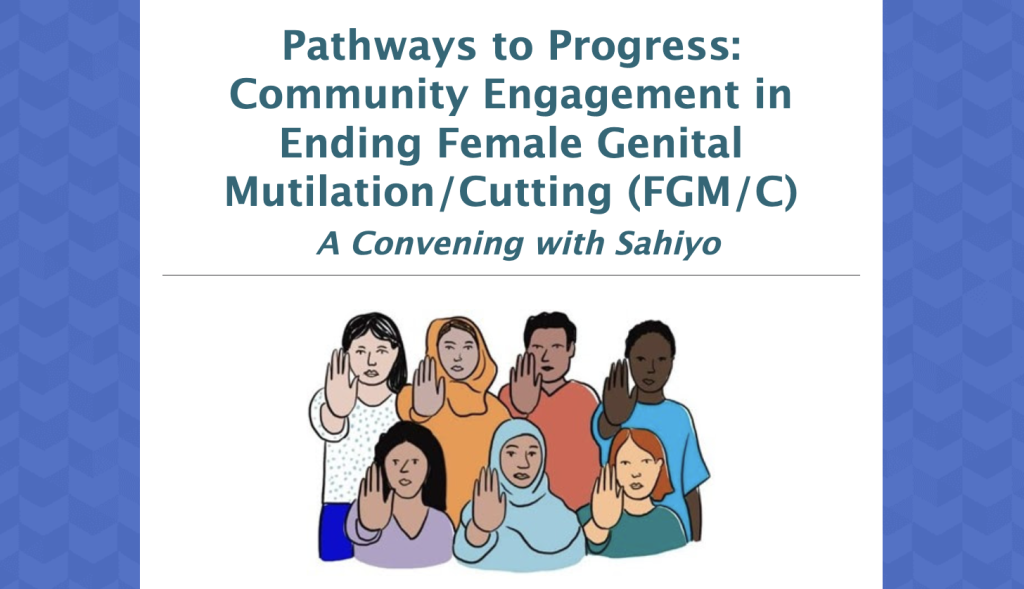
On March 18th, Sahiyo in partnership with RTI International hosted a virtual community forum to discuss the role of community engagement in prevention efforts to raise awareness on FGM/C and support communities impacted by it. Speakers included Mariya Taher, Samman Masud, Wonder Guannu, and Breanne Lash. Throughout the webinar, speakers uplifted their organization’s examples of effective outreach and education through various engagement strategies with individuals and communities impacted by FGM/C. Overall, the session provided a platform for sharing diverse case studies and illustrating real-world examples of community engagement in this field. These discussions delved into the intricacies of building partnerships, mobilizing resources, influencing systems, and sustaining community and individual-level involvement to improve the well-being of those affected by FGM/C. During the webinar Sahiyo and RTI announced their to-be-released Survivor and Community Engagement Toolkit that aims to provide guidance on best practices for outreach to FGM/C-impacted communities. The information inside the toolkit is largely informed and guided by the insights of this webinar’s panelist, in addition, to other real-life examples shared by U.S.-based community organizations actively involved in combating FGM/C.
Sahiyo’s Outreach at Townview High School
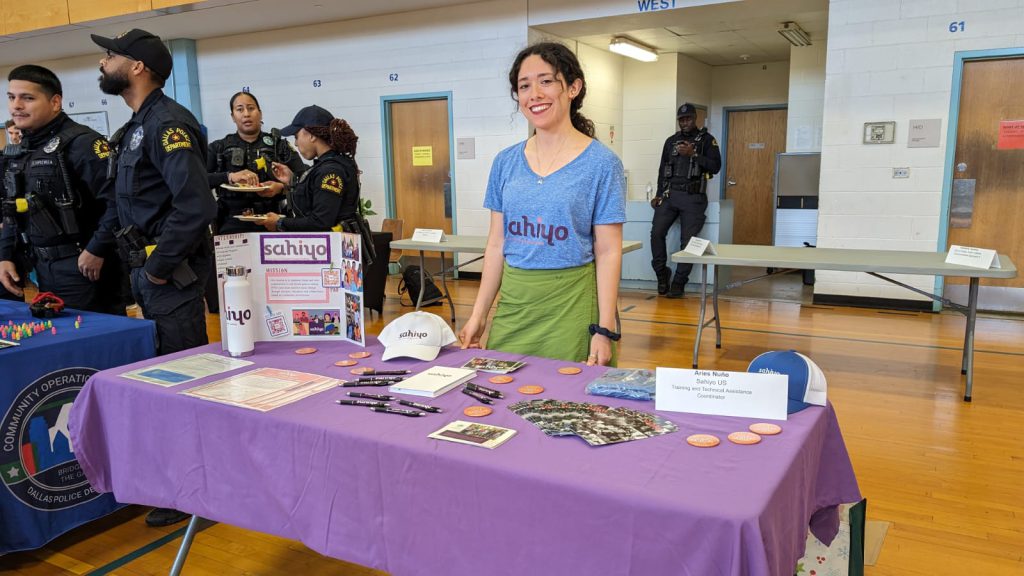
On February 23rd, Sahiyo had the opportunity to talk to students at the Townview High School Career Fair in Dallas, Texas. Our Training and Technical Assistance (T&TA) Coordinator, Aries Nuno, provided information about Sahiyo’s mission to end FGC and offered a glimpse into the workings of NGOs. The event allowed us to educate students about the impact of FGC and the importance of community involvement in addressing such issues. We presented various ways for students to contribute to this cause, including volunteering with organizations like ours, participating in educational initiatives about FGC, and encouraging conversations about the practice in their circles. It was encouraging to see how interested students were in learning more about social issues and how they can be part of the solution. We appreciate the chance to have been part of this career fair and talk to young individuals about making a difference through NGO work. We thank the staff and students of Townview High School for welcoming us and look forward to future opportunities to engage with the community. Whether in-person or online, if you are interested in inviting Sahiyo to your next career fair, community event, or classroom to talk about our work and how to get involved, email us at aries@sahiyo.org!
Equality Now releases the trailer of Asia’s first fiction film on FGM/C, directed by Sahiyo co-founder, Insia Dariwala
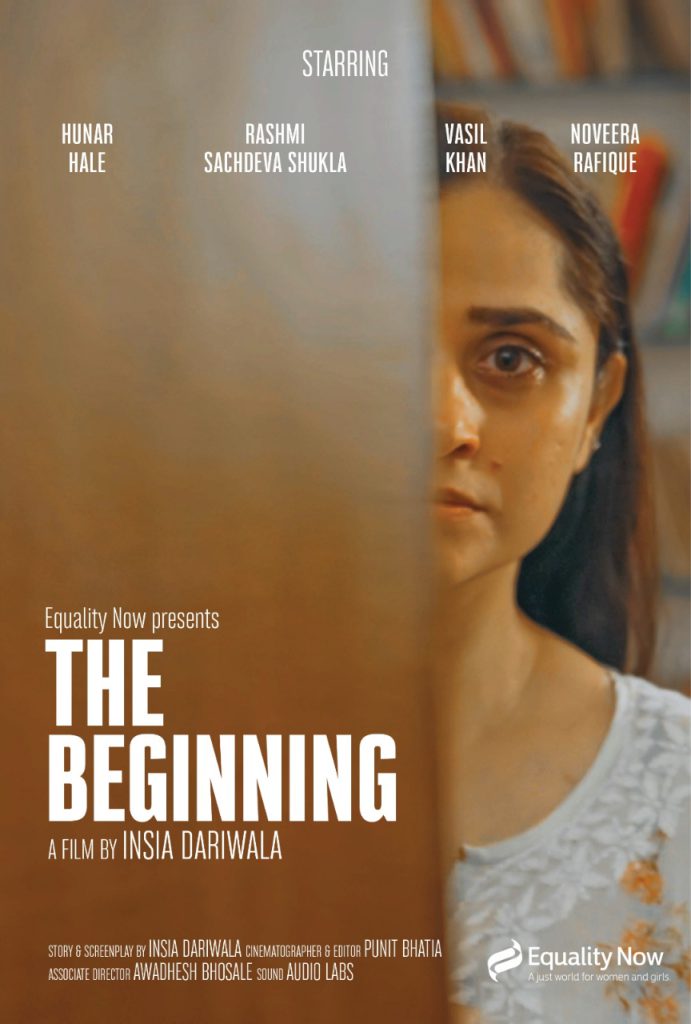
On International Day of Zero Tolerance for Female Genital Mutilation, Equality Now — an NGO that advocates for the rights and protection of women and girls around the world — released the trailer for “The Beginning.” Written and directed by Sahiyo’s co-founder Insia Dariwala, it’s the Asian continent’s first ever fiction film on Female Genital Mutilation/ Cutting (FGM/C). Inspired by real survivors who underwent FGM/C as little girls, the film highlights the trauma many struggled with, long after the cut. Equality Now’s Global Leader, Divya Srinivasan, who worked with Insia on producing the film said, “We believe that this thought-provoking piece evocatively demonstrates the struggles faced by a woman holding the dual experiences of being a survivor herself, while also being a mother who is expected to play a major role in continuing the practice with future generations.” She also writes, “Since survivors of FGM/C in India broke the silence about this practice over seven years ago, there have been great strides towards prevention and eradication of FGM/C. The issue of FGM/C in India has been recognised in the Supreme Court and at international bodies; and there is greater awareness on the patriarchal nature and harmful effects of the practice within practicing communities, particularly amongst the younger generation. However, we have a long way to go in the struggle to end FGM/C and we need more public conversations to change hearts and minds of all stakeholders, and prevention and response initiatives to ensure that we can move towards the goal of eradication.In partnership with Insia and Sahiyo, we hope that we can use this film to raise awareness on FGM/C in the country, particularly with young people; and to highlight FGM/C as a priority human rights issue that needs to be addressed by a range of stakeholders including the international community, medical associations, and CSOs working on ending gender-based violence in India.”
The African Women’s Clinic: An Interview with Australia’s Only FGM/C Clinic
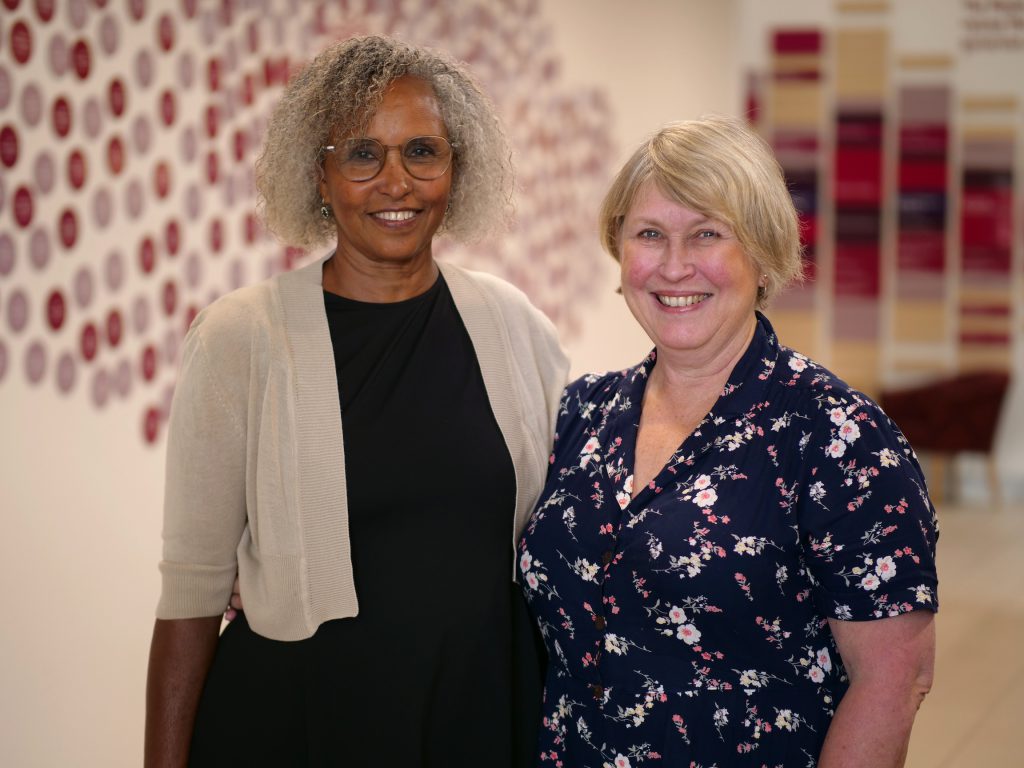
By: Kiah Leone While in Australia, I had the privilege of speaking with Marie Jones and Nigisti Mulholland from The African Women’s Clinic in Victoria, Australia to learn more about their clinic, the services they provide, and the current state of FGM/C-related care in the country. The African Women’s Clinic (AWC) is the only FGM/C-specific clinic in all of Australia. It’s staffed by women’s health nurses and midwives who provide confidential and comprehensive care to survivors living in the state of Victoria. For the last 14 years, the AWC has offered a safe space for survivors, while also providing FGM/C support and education resources. They have also made medical procedures such as de-infibulation more accessible to survivors. As a coordinator for the AWC, Marie works closely alongside Nigisti who is a coordinator for the Family and Reproductive Rights Education Program (FARREP)* at the Royal Women’s Hospital. FARREP is a program that provides services for women from places where FGM/C is practiced. Any survivor can self-refer to FARREP and once that contact has been established, a FARREP staff member can help the patient schedule their consultation, accompany them to their appointments, refer them to additional health services if necessary, and advocate for them if any issues arise. This close collaboration between FARREP workers and AWC clinicians has helped to foster an excellent environment to address the issue of FGM/C within a care setting. Clinic days are often filled with patient consultations, education and information sharing (involving books, diagrams, and mirrors), physical examinations, and deinfibulation procedures (when appropriate). Although clinic days may be busy, the advantage of a specialized clinic is that nurses and midwives at the AWC are able to spend as much time as needed with their patients. “This is the beauty of a FGM/C-specific clinic,” said Marie.“There is no 15-minute appointments. It might be 30 to 40 minutes or more.” Not only are staff able to spend more time with patients, but FARREP’s self-refer framework has helped to remove additional barriers to care such as long wait times. “It’s been wonderful for these women – they don’t have to wait long times to see a clinician, they can see us within two weeks or four weeks, ” explained Marie. “If they want de-infibulation on that day we do it on that day or if they want it two weeks later because they need some time to think about it, that’s not a problem, so the clinic has just made it so easy.” In addition to improving the availability of this type of care, staff at the AWC have also worked to improve the quality of care that survivors in Victoria receive by prioritizing survivors’ safety and comfort. According to Marie and Nigisti, this often starts by having multiple preliminary conversations to ease any patient concerns before they even arrive in the clinic. “I think that having this setup has helped them to build confidence in the early days,” said Nigisti. “Before they wouldn’t come for a review, but now they come in for a review and make an appointment to express their feelings and gratitude.” Once in the clinic, a staff member will usually take a patient history and identify the type of cutting the patient has undergone. They’ll also discuss any health issues they may be experiencing, whether they’re eligible for a de-infibulation procedure, and what steps would be involved if so. In addition to these services, education remains a cornerstone for staff at the AWC. “At the AWC, we do education not only in the survivors’ communities, but also for service providers to understand the cultural background and the need to be culturally aware and competent to look after these women,” explained Nigisti. This need for greater cultural awareness and competency amongst care providers is made clearer when patients share stories with Marie and Nigisti. Patients discuss all kinds of negative healthcare encounters they’ve experienced prior to finding the AWC. “We’ve had women with traditional cutting who try to find somewhere else to get help and the GPs [general practitioners] don’t know about FGM/C and you know the survivors go on for years before they actually find the clinic, but there’s lots of lots of stories like that,” Marie elaborates. “We would like to give a lot more education out to the community for all health professionals, so that we get the word out, because even after 14 years, there are still a lot of health professionals and GPs that don’t know that we exist, which is very unfortunate.” The stories shared here from Marie and Nigisti help to highlight the fact that FGM/C is a global issue that requires both local and international collaboration to address. As Australia’s first and only FGM/C clinic, the AWC has demonstrated a strong commitment to culturally safe and comprehensive care for survivors. In addition to offering a number of specialized services for patients, team members from both the AWC and the FARREP have emphasized the importance of expanding education efforts and a need for further resources in order to make that possible. To find out more about the African Women’s Clinic – or to learn how you can support the work that they do – please visit the African Women’s Clinic’s website. *Please note that since this discussion, Nigisti Mulholland has retired. Congratulations on your retirement, Nigisti! Thank you for your years of service supporting the health and well-being of FGM/C survivors.
Connecticut Hosts a Legislative Briefing on Jan 25th
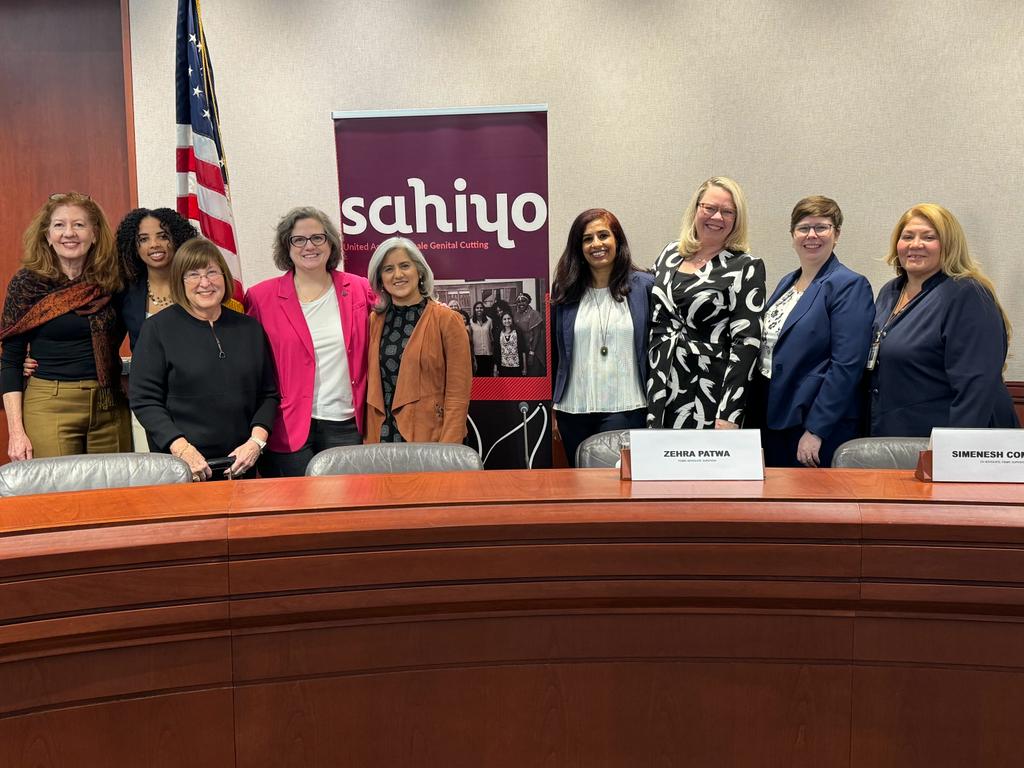
On January 25, 2025, the Connecticut (CT) Commission on Women, Children, Seniors, Equity and Opportunity, Representative Jillian Gilchrest, CT General Assembly Bi-Partisan Women’s Caucus, and the CT Coalition to End FGM/C held an event, just prior to the next legislative session, entitled Preventing FGM/C in Connecticut – Why Comprehensive Laws Matter. Special guests and co-hosts included Lieutenant Governor Susan Bysiewicz and the Governor’s Council on Women & Girls. The panel discussion that occurred during the event provided timely information and resources for legislators and their staff about FGM/C in the United States, as well as the need for comprehensive state laws to end the practice. Panelists shared their experiences and lessons they learned from legal reform processes in other states, which highlighted the important role of the law in changing social norms as well as protecting survivors, girls at risk, and society as a whole. The diverse panel of international, national, and local experts included women’s rights advocates, FGM/C service providers, and FGM/C survivors such as: Moderators: Rep. Jillian Gilcrest Steven Hernández Panelists Siminesh Comollo, CT Coalition to End FGM/C Caitlin LeMay, The US End FGM/C Network Zehra Patwa, Co-Founder and US Lead, WeSpeakOut Mariya Taher, Sahiyo: US Jill Thompson, Equality Now To date, 41 US States have enacted laws prohibiting the practice of FGM/C. Connecticut is one of nine states that has not yet addressed this harmful practice. This event was held in partnership with Sahiyo U.S.ahiyo U.S., Equality Now, and, the US End FGM/C Network.S End FGM/C Network. Watch a recording of the event here. In support of passing a law on FGM/C, this February 6th – International Day of Zero Tolerance for FGM/C, Governor Ned Lamont issued a Proclamation and Lieutenant Governor Susan Bysiewicz issued a Citation to commemorate the day.
